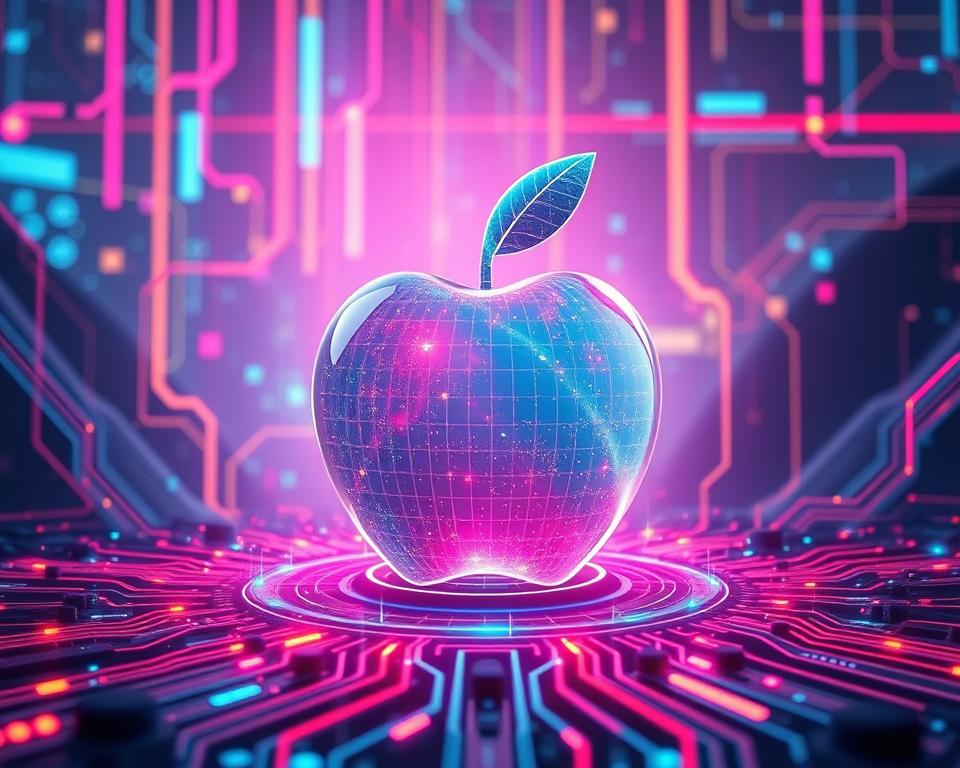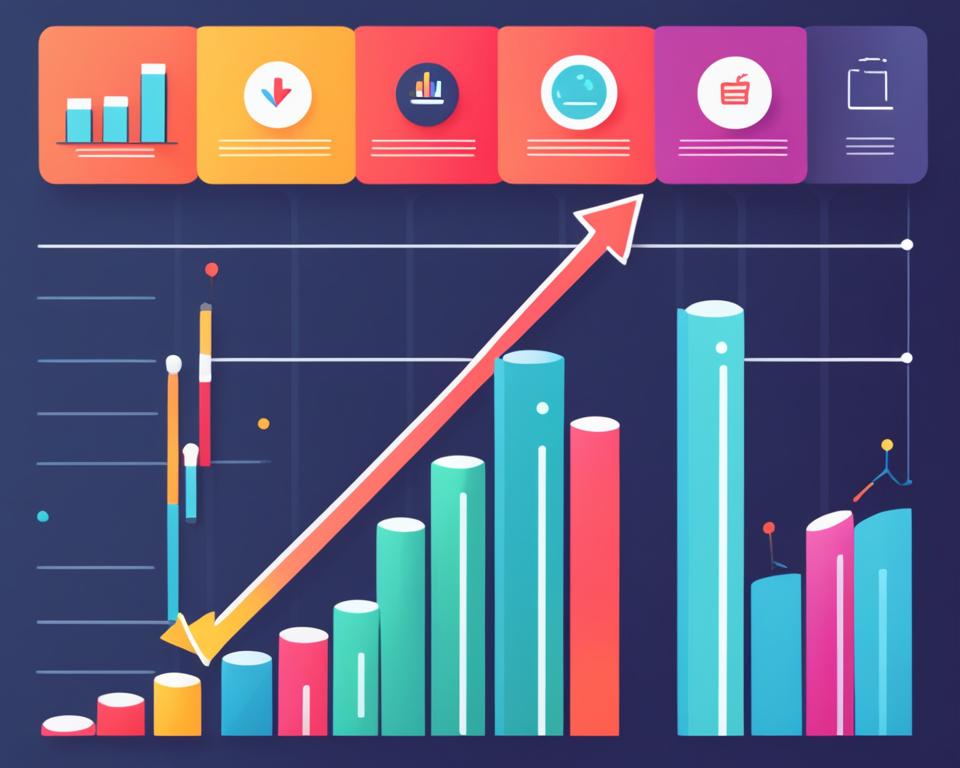In an age where digital fluency is not just preferred, but essential, a staggering 75% of the workforce believes their expertise will fall behind the curve within a mere half-decade. As we edge toward 2024, the urgency to stay ahead in the game by harnessing 10 tech skills you should add in 2024 becomes increasingly critical. The dynamic nature of 2024 tech trends demands that we not only adapt but also anticipate and master the future tech skills pivotal to our growth – both personally and professionally. The journey toward becoming well-versed in tech skills for the future 2024 is one that could redefine careers and create exciting opportunities in tomorrow’s tech-driven landscape.
Key Takeaways
- Identifying and learning the top 10 tech skills you should add in 2024 is essential for career sustainability.
- Staying updated with skills to add in 2024 will empower professionals to innovate and lead in their respective fields.
- Understanding and adopting 2024 tech trends will be crucial for staying competitive in an evolving job market.
- The advancement in technology necessitates a proactive approach to mastering future tech skills.
- Professionals must strategize their learning to align with the anticipated demand for tech skills for the future 2024.
Emerging Tech Skills Shaping the Future
As we venture closer to 2024, the tech landscape continues to evolve, spearheading new developments that are reshaping how we interact with the world around us. To thrive in this dynamic environment, identifying and mastering emerging tech skills becomes not just beneficial but essential for professionals in the industry. By focusing on the latest tech skills 2024 has to showcase, those poised to lead the tech wave can derive significant value and innovation for their respective fields.
Identifying Key Growth Areas in Technology
To hone in on the trending tech skills, one must look at the technological frontiers where growth is most accelerated. Areas such as artificial intelligence, quantum computing, and the Internet of Things (IoT) are hotbeds for technological breakthroughs. These fields are not only advancing in capabilities but also in their applications across various sectors.

Each of these domains requires specialized knowledge and expertise, crafting a workforce that’s able to forge ahead the benefits these technologies promise. As such, staying informed and educated in these areas is becoming more of a requisite than a choice for tech professionals who aspire to remain ahead of the curve.
How Technology Trends Influence Skill Development
The symbiotic relationship between technology trends and skill development is evident as emerging technologies dictate new skill requirements. There’s an undeniable push for tech professionals to adapt, upskill, or even reskill to meet the demands of an industry shaped increasingly by innovation and automatization.
Understanding not only the functional aspects of new technologies but also their broader implications is paramount. As such, the focus on future tech skills extends beyond technical proficiency to encompass strategic thinking and problem-solving capabilities within tech-driven environments. The adeptness to leverage these technology skills will be the defining factor of successful tech professionals in 2024 and beyond.
Machine Learning and AI Proficiency
The realm of machine learning and artificial intelligence is expanding its influence across industries, signaling an unprecedented demand for AI skills as we look towards future tech skills 2024. From streamlining operations to enhancing customer interactions, the impact of AI is vast and multifaceted. Professionals adept in the latest machine learning algorithms and data models will harness the potential to propel businesses into a new era of efficiency and personalized service solutions.
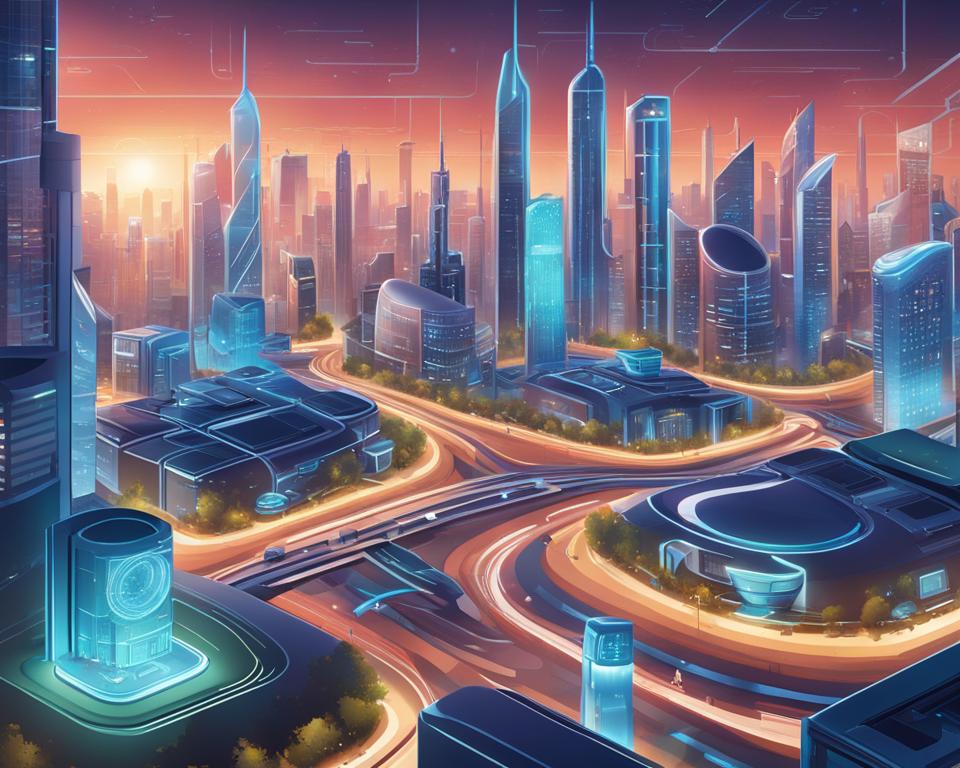
As AI technologies evolve, they create a bridge between vast data capabilities and human-like decision-making processes. Learning these complex systems is not just about programming proficiency; it’s about cultivating a deep understanding of the interplay between technology and practical application. This includes a foundation in neural networks, predictive analytics, and natural language processing.
- Understanding and implementing complex algorithms
- Constructing and validating predictive data models
- Developing applications with natural language processing
- Designing smart systems powered by deep learning
Professionals who develop strong AI skills are becoming invaluable assets in sectors ranging from finance and healthcare to transportation and marketing. The versatility and adaptability of AI capabilities mean that those who remain on the frontier of technology will excel.
Indeed, as we prepare for 2024, those well-versed in machine learning and artificial intelligence are not just participants in the technology landscape, but key innovators defining the course of industries and society at large. The rise of AI skills is not just a trend but a fundamental shift in the operational fabric of future economies.
Cybersecurity Essentials for Safeguarding Data
In a world where data breaches can mean financial loss, reduced consumer confidence, and even legal repercussions, the importance of robust cybersecurity measures cannot be overstated. As cyber threats grow more sophisticated, developing cybersecurity skills is essential for professionals across all sectors tasked with safeguarding sensitive information.
Understanding Threats and Implementing Defense Strategies
Cyber-attacks come in various forms, including phishing, ransomware, and malware attempts designed to steal or compromise data. Implementing effective defense strategies requires not only technical know-how but also an all-encompassing approach that includes employee training, secure network design, and vigilant best practices. Here are key pillars for a comprehensive cybersecurity plan:
- Risk Assessment: Identifying vulnerable assets, evaluating potential threats, and determining impact.
- Technical Controls: Utilizing firewalls, antivirus software, and encryption to create multiple layers of defense.
- Policies and Procedures: Developing clear guidelines for securing information and dealing with incidents.
- Continuous Monitoring: Keeping an eye on network traffic and logs to detect anomalies early.
- Incident Response Plan: Preparing for a potential breach with a robust strategy to limit damage and recover quickly.

Regulatory Compliance and Ethical Concerns
Adhering to regulatory compliance is integral to any cybersecurity strategy. Laws such as the General Data Protection Regulation (GDPR) and the California Consumer Privacy Act (CCPA) outline strict guidelines for data protection and require companies to handle data responsibly. Professionals must stay informed about these regulations to ensure that their organizations meet legal standards and address ethical concerns regarding user privacy.
| Regulation | Purpose | Key Requirements |
|---|---|---|
| GDPR | Protects the data and privacy of all EU citizens | Data processing transparency, mandatory breach notification, and rights for data subjects |
| CCPA | Gives California residents more control over their personal information | Consumer rights to access and deletions, opt-out provision for data sales |
| HIPAA | Secures sensitive patient health information | Administrative, physical, and technical safeguards to ensure data confidentiality |
Ultimately, a thoughtful blend of policy understanding and technical prowess in cybersecurity is vital for any organization’s resilience against online threats and ethical data management.
Cloud Computing Mastery
The landscape of IT infrastructure is being reshaped by the relentless ascent of cloud computing. A mastery of cloud computing skills is not just a buzzword but a necessity in the digital era, with businesses and governments requiring scalable, on-demand computing resources that can pivot and expand with their ever-evolving needs. The rapid migration to cloud solutions by organizations necessitates professionals adept in handling various cloud service platforms, embarking on strategic cloud migration plans, and fortifying cloud security—a suite of expertise that will be pivotal among tech skills for the future 2024.
As we surge towards 2024, the aptitude for maneuvering through complex cloud environments becomes critical. Below is a snapshot of the core cloud computing proficiencies that are set to become the bedrocks of a robust IT skillset:
- Understanding of Cloud Service Models (IaaS, PaaS, SaaS)
- Skills in Cloud Migration and Deployment Strategies
- Proficiency in Cloud Security and Compliance
- Experience with Cloud Storage and Data Management
- Cloud Application Development and Management
These competencies align neatly with the overarching aim to not only adapt to the cloud-centric work environments but also to lead the charge in innovation and operational agility. The following table juxtaposes essential cloud computing skills with the related applications, demonstrating their tangible impact on industry capabilities:
| Cloud Computing Skill | Application in Industry |
|---|---|
| Multi-Cloud & Hybrid Cloud Solutions | Integration of multiple cloud services to promote flexibility and prevent vendor lock-in. |
| Automation & AI in Cloud Environments | Refinement of cloud operations through automation and AI-driven prognostics. |
| Cloud Security & Disaster Recovery | Implementing proactive measures to protect data and ensure business continuity. |
| Edge Computing & IoT Integration | Handling real-time data processing closer to IoT devices to enhance performance. |
| Serverless Architecture | Empowering developers to focus on applications, not on managing servers. |
In conclusion, the pursuit of excellence in cloud computing will remain an imperative stride for IT professionals as we approach 2024. Those poised to excel in these cloud computing realms are the ones who will navigate the expanse of technological transformations not merely as participants, but as trailblazers in the global digital narrative.
10 tech skills you should add in 2024
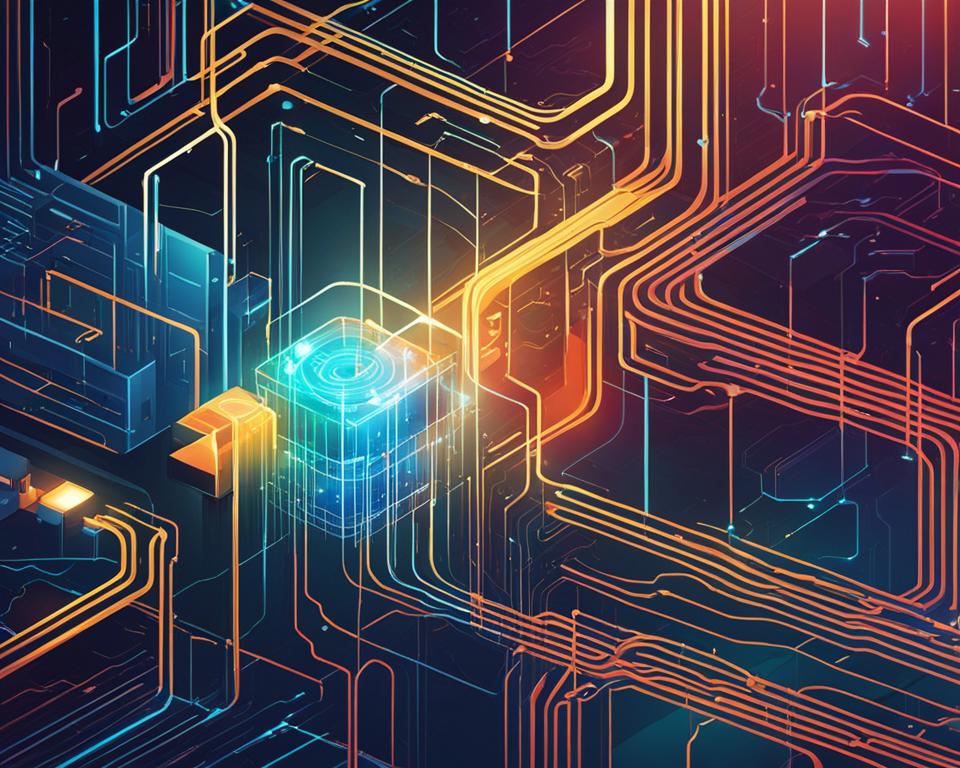
As the new year approaches, there is no better time than now to focus on the important tech skills that will define our digital landscape in 2024. From automation to quantum computing, professionals must equip themselves with a suite of competencies that will not only enhance their employability but also propel industries forward. Below we delve into two such pivotal domains: Natural Language Processing (NLP) and Quantum Computing, which are reshaping the technological horizon.
NLP (Natural Language Processing) Innovations
Today’s digital environment demands an intimate understanding of NLP, a field that stands at the intersection of AI and linguistics. The growing sophistication of NLP technologies has immense implications for how we build and interact with smart systems. Here are the tech skills to learn within the realm of NLP:
- Machine Learning Algorithms for Language Modeling
- Contextual Analysis for Enhanced User Experience
- Sentiment Analysis to Gauge Consumer Insights
- Speech Recognition Development for Voice-Assisted Technologies
Transitioning to Quantum Computing
The emergence of quantum computing as a vital skill in the technology sector cannot be overstated. Positioned to revolutionize problem-solving, professionals eager to adopt tech skills 2024 must closely follow this groundbreaking shift. The quantum realm offers unique challenges and opportunities—grasping these will be crucial for any tech enthusiast or professional:
| Quantum Computing Concepts | Industry Applications |
|---|---|
| Understanding Quantum Mechanics | Cryptography and Security |
| Quantum Algorithm Development | Financial Modeling |
| Quantum Hardware Knowledge | Pharmaceutical Research |
| Quantum Machine Learning Techniques | Logistical Optimization |
By mastering these important tech skills, such as NLP and quantum computing, professionals will not only remain competitive but also become integral catalysts for innovation within their organizations. As 2024 nears, the commitment to learning and adapting to these technological advancements will serve as a cornerstone of an impactful and successful career in tech.
In-Demand Blockchain Technologies
As the digital revolution propels forward, blockchain remains a game-changer for various industries, fortifying the integrity of digital transactions and fostering novel ways to share and validate information. A burgeoning number of sectors are pivoting to embrace the exceptional benefits offered by blockchain technology, particularly its flagship features of security and transparency. With its applications stretching far past the realm of cryptocurrency, blockchain is carving a new trajectory for how businesses operate and data is exchanged.
Smart Contracts and Distributed Applications
At the heart of the blockchain revolution lie smart contracts: self-executing contractual states, stored on the blockchain, which automatically execute when predefined conditions are met. These smart contracts not only cut out intermediaries, leading to reduced costs, but also significantly diminish the propensity for fraud, creating a trustless environment for transactions. Alongside, distributed applications (DApps) — operating on a blockchain network that is both open and resilient — are altering how applications are traditionally viewed, granting users unprecedented levels of control and ownership over their data.
Blockchain for Enhanced Security and Transparency
The immutable and transparent nature of blockchain fosters unparalleled levels of security and transparency. The ledger that blockchain provides is tamper-evident, creating a system where the data’s integrity is verifiable by any party involved. This transparency equates to enhanced security, which is a critical concern in a world where digital breaches and information misuse are rampant. Implementing blockchain can drastically reshape risk management strategies and revolutionize the way sensitive data is protected.
Below is a table showcasing the juxtaposition of traditional systems versus blockchain-enabled systems:
| Aspect | Traditional Systems | Blockchain-Enabled Systems |
|---|---|---|
| Data Integrity | Subject to central point of failure | Distributed ledger with cryptographic hashing |
| Transparency | Limited based on organizational policies | Complete transaction history is visible |
| Security | Potential for breaches via centralized databases | Decentralization reduces risk of data breaches |
| Cost Efficiency | Higher due to intermediaries | Lower cost due to removal of middlemen |
| Speed | Delayed by manual processes and intermediation | Real-time updates with smart contracts |
| Trust | Relies on third-party validation | Trustless system; verification built into protocol |
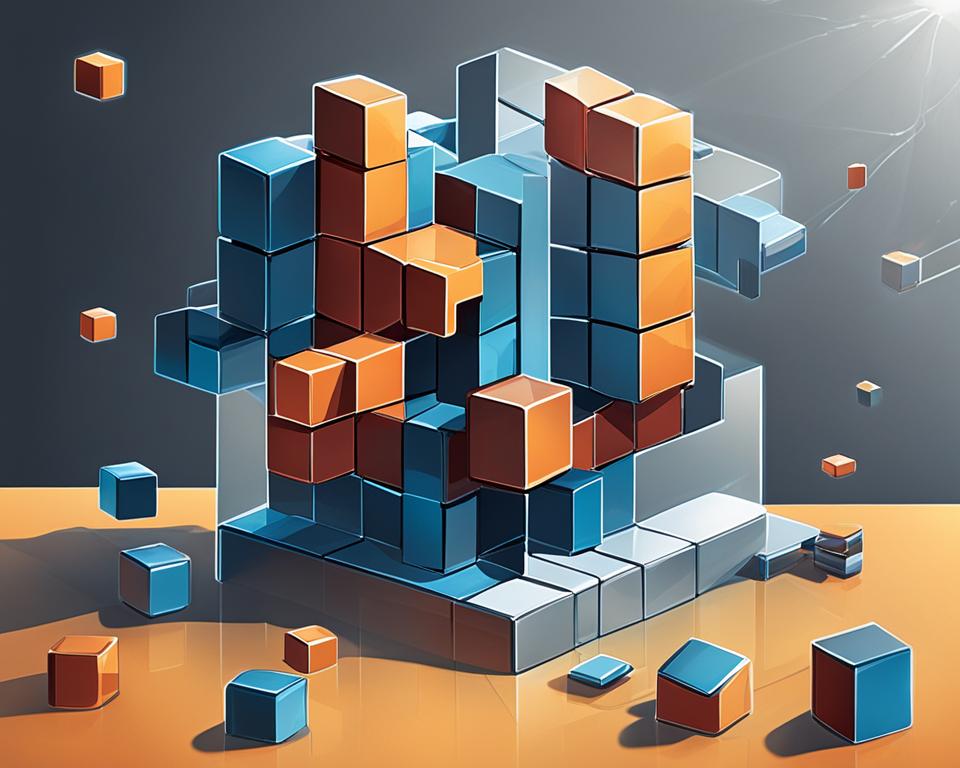
The undeniable impact of blockchain on the contemporary digital ecosystem marks it as an essential discipline for technological adeptness. Learning and mastering blockchain-related skills such as understanding smart contracts, developing distributed applications, and fortifying blockchain security and transparency is not just advantageous — it’s increasingly becoming a necessity for the savvy tech professional plotting their course through the dynamic terrain of tomorrow’s tech career paths.
Data Analytics and Interpretation
In today’s data-driven landscape, the ability to sift through large datasets, extract meaningful information, and influence business strategies is more valuable than ever. Proficiency in data analytics is not just about crunching numbers; it’s about telling a story with data, understanding its nuances, and driving decisions that propel businesses forward. This proficiency equates to a combination of methodological know-how, statistical acumen, and technical prowess. Below is a breakdown of the essential data analysis skills that professionals need to thrive in any data-centric role.
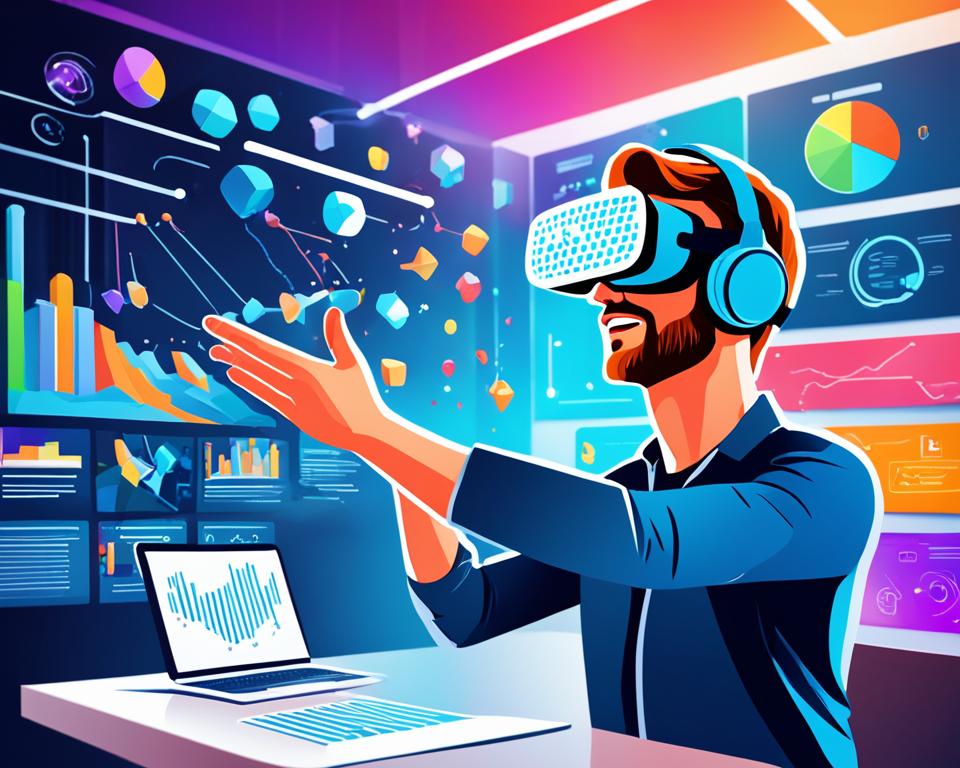
| Skill Category | Essential Skills | Application |
|---|---|---|
| Data Collection and Preprocessing | Survey design, Data scraping, Data cleansing | Preparing accurate datasets for analysis |
| Statistical Analysis | Hypothesis testing, Regression analysis, Predictive modeling | Interpreting data, Identifying trends, Making predictions |
| Data Visualization | Chart creation, Dashboard development, Infographics | Presenting data in an understandable and impactful way |
| Software Proficiency | Excel, R, Python, SQL, Tableau | Executing data analysis with industry-standard tools |
| Interdisciplinary Communication | Data storytelling, Technical writing, Presentation skills | Communicating insights to both technical and non-technical audiences |
As businesses continue to recognize the immense value of data-driven decision-making, the demand for skilled professionals in data analytics is skyrocketing. Whether it’s in marketing, finance, healthcare, or tech, the ability to analyze and interpret data has become a staple in many job descriptions. Candidates ready to harness these skills will find themselves at the helm of the industry’s future, shaping strategies with the power of data.
Integration of IoT Devices
The transformation of regular spaces into smart environments driven by the Internet of Things (IoT) is rapidly advancing, redefining how we interact with the physical world. Employing IoT technology allows for enhanced automation, greater control, and a level of customization previously unattainable. As the integration of IoT becomes more predominant in our daily lives, ranging from straightforward smart home setups to the complex landscapes of industrial automation, mastering the nuances of IoT deployment is invaluable.
Building Smart Environments with IoT
Creating connected spaces where appliances, lighting, climate control, and entertainment systems cooperate seamlessly is no longer the stuff of science fiction. Smart environments leverage IoT connectivity to make daily tasks more convenient, industries more efficient, and public services more responsive. The architecture of smart environments necessitates skilled professionals who can configure and synchronize an array of devices to work together.
Ensuring Device Security and Connectivity
However, the bright prospects of IoT are not without challenges. As the number of IoT devices mushrooms, so does the complexity of ensuring device security and maintaining robust IoT connectivity. Technical expertise is needed to safeguard devices from cyber threats that can exploit vulnerabilities in interconnected systems. Ensuring solid IoT connectivity, on the other hand, requires a profound understanding of network protocols and the ability to troubleshoot a myriad of potential issues that can impede device communication.

| Category | Essential Skills | Industry Application |
|---|---|---|
| Home Automation | Device integration, User interface design | Residential |
| Industrial IoT (IIoT) | Machine learning, Predictive maintenance | Manufacturing, Logistics |
| Urban Infrastructure | Data analytics, Network management | Smart Cities, Transportation |
| Healthcare | Remote monitoring, Compliance with regulations | Hospitals, Care centers |
| Retail | Inventory tracking, Customer experience enhancement | Stores, Supply Chains |
As we project into 2024,
“The fluency in IoT platforms and protocols alongside a relentless pursuit of innovation will separate the leaders from the laggards in this digital era,”
suggests the progression. The interconnectedness of IoT devices, safeguarding against unauthorized access, and upholding constant, reliable connections will be the mainstay of thriving smart environments. The continual growth in the IoT sector calls for a proactive approach to skill acquisition, a commitment to learning, and a relentless focus on driving the seamless integration of technologies into the fabric of everyday life.
Fundamentals of Robotics and Automation
The integration of robotics and automation technology is revolutionizing the way we work, producing unprecedented levels of efficiency and precision in various industries. At the core of this transformation are the advanced skills required to implement and manage these autonomous systems. Let’s delve into the pivotal roles these technologies play in both the manufacturing and healthcare sectors.
Robotics in Manufacturing and Healthcare
Manufacturing robotics are fundamentally changing production lines, from automobile assembly to food packaging. These robotic solutions offer manufacturers increased speed, improved quality, and greater adaptability. Meanwhile, healthcare robotics are making surgeries less invasive, rehabilitation more effective, and care delivery more personalized. Both fields demand professionals adept at design, control, and the collaborative use of robotics in dynamic environments.

Advancements in Autonomous Systems
As autonomous systems evolve, they are set to broaden the scope of robotic applications, pushing the limits of what can be automated. These systems, guided by complex algorithms and AI, can make decisions and take actions with minimal human intervention. It’s critical for professionals in the field to stay informed about these advancements, as well as to understand the implications for safety, ethical considerations, and long-term societal impacts.
Software Development in Virtual and Augmented Reality
The realm of software development is witnessing a paradigm shift with the rising prominence of virtual reality (VR) and augmented reality (AR). These cutting-edge technologies are transforming the way users interact with digital content, providing immersive experiences that were once the stuff of science fiction. For developers, the ability to create applications within these platforms is not just an attractive skill but a dynamic gateway to the future of interactive technology.
With VR and AR integration, software developers are tasked with constructing complex 3D environments that respond to user input in real time. This requires a robust understanding of not only traditional development skills but also specialized knowledge of VR and AR frameworks and design principles. Industries ranging from gaming and entertainment to education and retail are eagerly adopting these immersive technologies to provide enhanced customer experiences.
To illustrate the multi-faceted nature of this tech evolution, let’s delve into some specific areas where proficiency in VR/AR is becoming indispensable:
- Game Development: Crafting expansive virtual worlds with intricate mechanics that engage players on a profoundly interactive level.
- Training and Simulation: Creating realistic simulations for medical, military, and aviation industries, allowing for safe and controlled training environments.
- Retail Experience: Enhancing the shopping experience with virtual try-ons and in-store navigation, bridging the gap between convenience and personalization.
Understanding that each of these applications requires a nuanced approach, the software development process for VR and AR is nuanced and complex. It is a blend of creativity, technical skill, and user-centered design. Here’s a concise comparison of typical development considerations for both VR and AR:
| Aspect | Virtual Reality (VR) | Augmented Reality (AR) |
|---|---|---|
| User Experience | Fully immersive, transporting users to a different environment | Enhanced reality, overlaying digital content onto the physical world |
| Hardware Requirements | Headsets and sometimes additional accessories for full immersion | Mostly relies on smartphones and tablets; AR glasses are emerging |
| Development Software | Unity, Unreal Engine | ARCore, ARKit |
| Use Cases | Gaming, Virtual Meetings, Training Simulations | Navigation, Information Overlay, Interactive Marketing |
As we continue to witness advancements in hardware and software development tools, the potential for VR and AR integration across various sectors will only expand. For developers, staying at the forefront of this technological wave means continuously refining their skill sets and embracing the immersive potential of virtual and augmented realities.
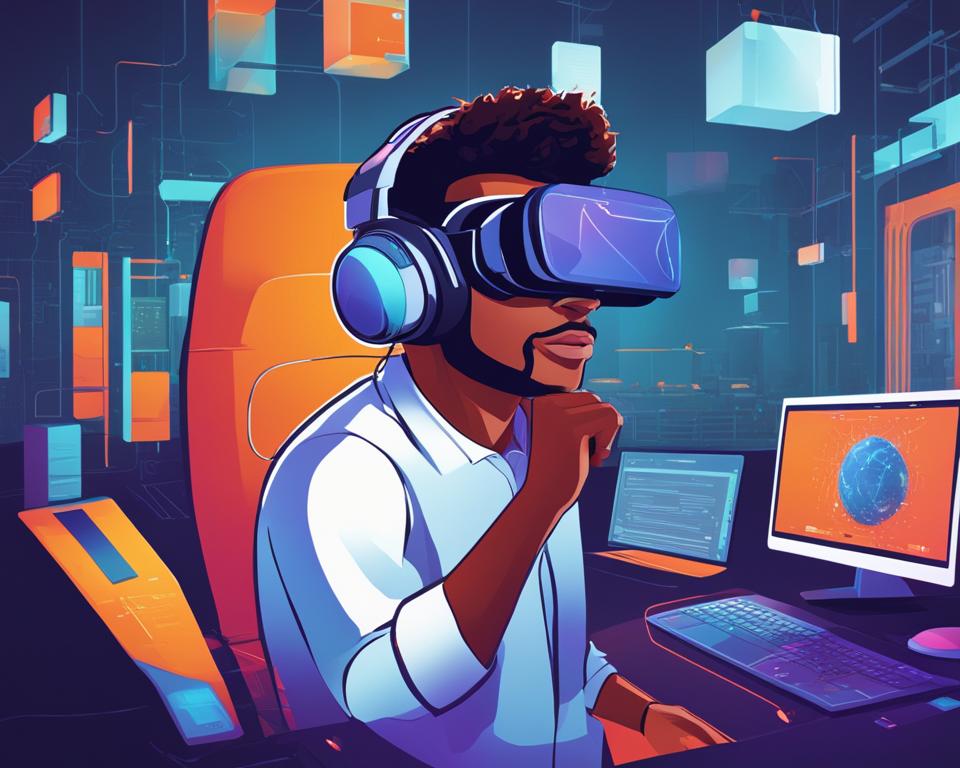
In a nutshell, the ability to develop for VR and AR platforms is more than a niche skill—it’s a forward-looking asset that will play a critical role in shaping the technological landscape of tomorrow. For those with the foresight to invest in these capabilities today, the opportunities are virtually limitless.
Conclusion
As we navigate a future where digital innovation is the norm, equipping oneself with the best tech skills 2024 is not just an added advantage, it’s a necessity. The convergence of AI, cybersecurity, cloud computing, and more represents the nexus of next-generation technological empowerment. For those willing to commit to lifelong learning, grasping these essential tech skills 2024 ensures not only relevance but leadership in a world transformed by tech.
To stand out in the ever-evolving tech industry, understanding the must-have tech skills 2024 is imperative. Investing in skills such as blockchain, data analytics, and IoT is investing in one’s ability to mold the tech sphere. Whether you’re designing the fabric of smart cities, safeguarding the data that powers them, or crafting experiences in VR and AR spaces, these cutting-edge tech skills will carve a path for those who dare to be at the forefront of innovation.
In sum, as the calendar pages toward 2024, those who master the top tech skills 2024 will be the drivers of change and the architects of the future. Charting a course in this dynamic landscape means having the agility to adapt and the vision to thrive. The fusion of these skills will not only delineate pioneers from followers but also weave the blueprint for an audacious, tech-centric epoch.
FAQ
What are the top 10 tech skills to learn in 2024?
The top tech skills for 2024 include machine learning, artificial intelligence, cybersecurity, cloud computing, blockchain, data analytics, Internet of Things (IoT), robotics, virtual reality (VR), and augmented reality (AR).
How are emerging tech skills in 2024 shaping the future?
Emerging tech skills such as advancements in AI, quantum computing, and IoT are driving transformation across various industries, catalyzing growth, and creating new opportunities for innovation and efficiency.
Why is proficiency in machine learning and AI essential?
Proficiency in machine learning and AI enables professionals to automate complex tasks, improve decision-making, and offer personalized experiences, keeping them at the cutting edge of industry innovations.
What are the essentials of cybersecurity for safeguarding data?
Mastering cybersecurity involves understanding the latest threats, implementing robust defense strategies, staying updated with regulatory compliance, and navigating ethical concerns related to data privacy and protection.
Why is mastery in cloud computing crucial?
Cloud computing mastery is essential for designing, implementing, and managing scalable, secure, and cost-effective tech solutions, supporting the digital transformation of businesses.
How are NLP innovations impacting technology?
Innovations in Natural Language Processing (NLP) are significantly improving how machines understand and respond to human language, revolutionizing customer service, sentiment analysis, and content creation.
What is the significance of transitioning to quantum computing?
Transitioning to quantum computing signifies a major leap in problem-solving capabilities, enabling the processing of vast amounts of data at unprecedented speeds and driving forward scientific and technological progress.
Why are blockchain technologies in high demand?
Blockchain technologies are in demand due to their ability to usher in heightened security, transparency, and efficiency across multiple sectors, notably in decentralized finance, supply chain management, and intellectual property.
What role does data analytics play in business and technology?
Data analytics is key for deriving actionable insights from large datasets, influencing strategic decisions, and underpinning data-driven business models that can drastically improve performance and outcomes.
How is the integration of IoT devices significant?
Integration of IoT devices paves the way for smarter environments, improved automation, and enhanced information exchange, contributing to efficiency gains in personal, commercial, and industrial domains.
What are the fundamentals of robotics and automation?
The fundamentals of robotics and automation involve the design, control, and deployment of robots that can assist, augment, or automate human activities, particularly within sectors such as manufacturing and healthcare.
What is the importance of VR and AR software development?
Software development in VR and AR is gaining importance as these technologies create immersive experiences and practical applications in fields ranging from entertainment to education and retail.
What makes a tech skill “cutting-edge” in 2024?
A cutting-edge tech skill in 2024 is one that is at the forefront of technological advancements, has the potential to disrupt current practices, and offers significant opportunities for innovation and growth in various industries.





